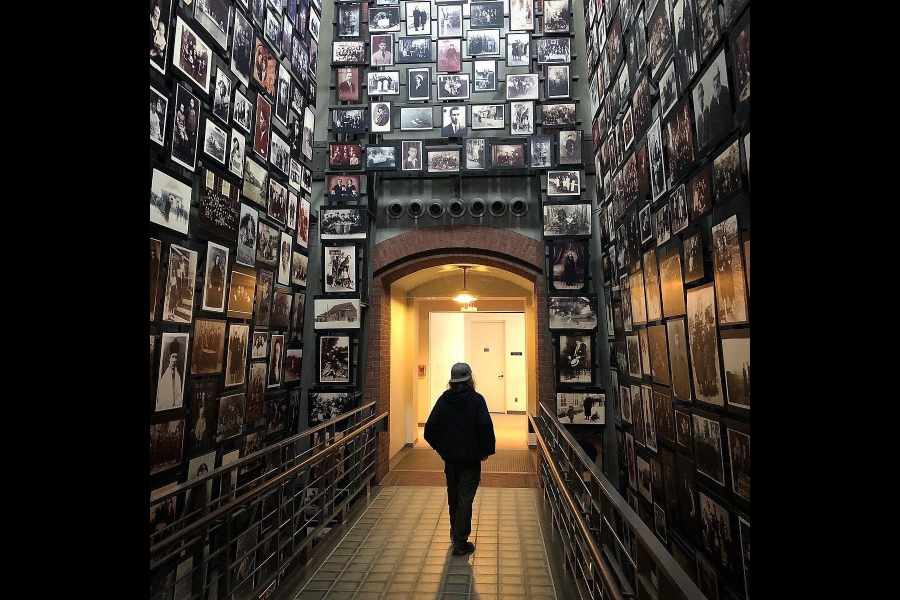Book: FERVOUR
Author: Toby Lloyd
Published by: Sceptre
Price: Rs 899
“All our ancestors and all future generations are present in us all the time. Happiness is not an individual matter. As long as the ancestors in us are still suffering we can't be happy, and we will transmit their suffering to our children and their children,” said the Vietnamese monk, Thich Nhat Hanh. Toby Lloyd embodies this wisdom in Fervor. In the Rosenthal household, Judaism (and its practise) is a bone of contention; religion is either accepted with blind faith or barely tolerated, if not entirely rejected. Following the death of their grandfather and Holocaust survivor, Yosef, ties in the family — the parents, Eric and Hannah, and the three children, Gideon, Elsie and Tovyah — get strained, never to regain their earlier ease.
The mother, a writer-journalist, publishes a book on her father-in-law’s traumatic time in Treblinka and the horrors of the concentration camp, a story she coerces out of the old man in his final years, much to the disapproval of the rest of the family. The husband leans on his faith and traditions to guide him in life. The daughter, Elsie, acts strangely in school and at home. Her sudden disappearance and mysterious return change the family ambience. Elsie finds solace in old Hebrew texts and a gravestone pebble, even as the two brothers distance themselves from the family, physically and emotionally. Gideon shifts to Tel Aviv to lead a military life, and Tovyah, the “apostate” son, moves to Oxford for a life in academia where he meets and befriends Kate, the narrator of the story in parts.
“When a writer is born into a family, that family is finished.” This Czeslaw Milosz quote has been cited by many writers who have mined their personal lives (and of those around them) for literary material, as Hannah does in this novel. From Philip Roth to Annie Ernaux to Julian Barnes to Ernest Hemingway, family has either been the writers’ primary source of inspiration or the subject of their comment. Although in Llyod’s book, the question of where to draw the line emerges much more clearly than in the works of some others.
Fervor is a tribute to literature, academia, as well as a socio-political critique. Llyod also commemorates writers like Franz Kafka and Marcel Proust. Through Tovyah’s and Kate’s Oxford adventure, he brings forth other debates: on religion as an evolved political tool; on psychiatry versus mysticism as a diagnostic measure; on public threats to a writer for taking a controversial (or problematic, in Hannah’s case) stand, echoing the attack on Salman Rushdie; on the antisemitism versus anti-Zionism debate in light of the Israel-Palestine conflict.
Much has been written about the Holocaust in literature. But Fervor is not a story of the Holocaust; it is a story of the Holocaust's shadow that follows its victims, survivors, and their future generations. Yosef’s spirit, his trauma, never leaves his family, continuing till the third generation; possibly, to be passed on further. The story of the Rosenthal family fits another literary cliché: “Every unhappy family is unhappy in its own way,” as the Tolstoian adage goes. Their unhappiness, or rather fateful misery, comes to fruition in Llyod’s impressive novel, his writing prowess compensating for his inconsistent narrators. His commitment to traditional Jewish references — to scriptures, parables and religious jargon as well as orthodox mannerism — gives Fervor an organic flavor. Although overbearing at times, the book is what Cynthia Ozick calls “religion’s habitation in art” in its truest sense.











